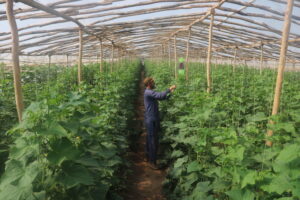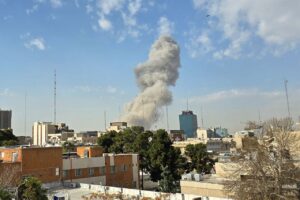KABUL (SW) – In recent years, climate change and water scarcity have become serious threats to agricultural yields across the country and have exposed many fields to destruction.
This year, after the prohibition of poppy cultivation by the leader of the Islamic Emirate, most farmers, especially farmers in the southern parts of Afghanistan, have planted alternative crops in their fields. These farmers say that the water shortage crisis and natural events such as floods and plant pests threaten their products.
Imran, a farmer in Helmand who has planted wheat in his fields this year, says that his fields will yield less because of the lack of water and the high cost of wheat cultivation.
He added: “Many people have cultivated wheat this year. Wheat cultivation has many problems. For example, wheat does not have a good market compared to opium, and we do not have water for wheat cultivation. In order to supply water to our land, we had to dig deep wells and buy solar power, and our expenses increased.”
In other parts of the country, the weather has affected agricultural products and a large part of them has been lost as a result of the cold weather.
Farooq, a farmer in Ghazni, said: “There is no harvest, the weather frozen the apricots and plums, and this year there is no harvest.”
A number of farmers interviewed by Salam Watandar said that until now, the caretaker government, especially the Ministry of Agriculture, Irrigation and Livestock, has not cooperated with them in dealing with natural events, especially drought and flood management.
Meanwhile, Abdulbasit Rahmani, an expert on environment and water resources, says that the current approach of the government in dealing with the drought problem has highlighted the consequences of this phenomenon. He added: “In the field of flood and drought management, the structure we have is a committee structure, this field should be transformed into a sector, so that it is included among the important strategies of the government. The early warning system should be activated, we should use flood control systems that have structures such as flood control and storage.”
We wanted to get the views of the ministry of agriculture, irrigation and livestock, but the officials of these ministries did not respond to Salam Watandar’s repeated calls.
ENDS






